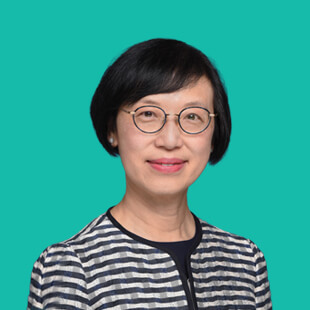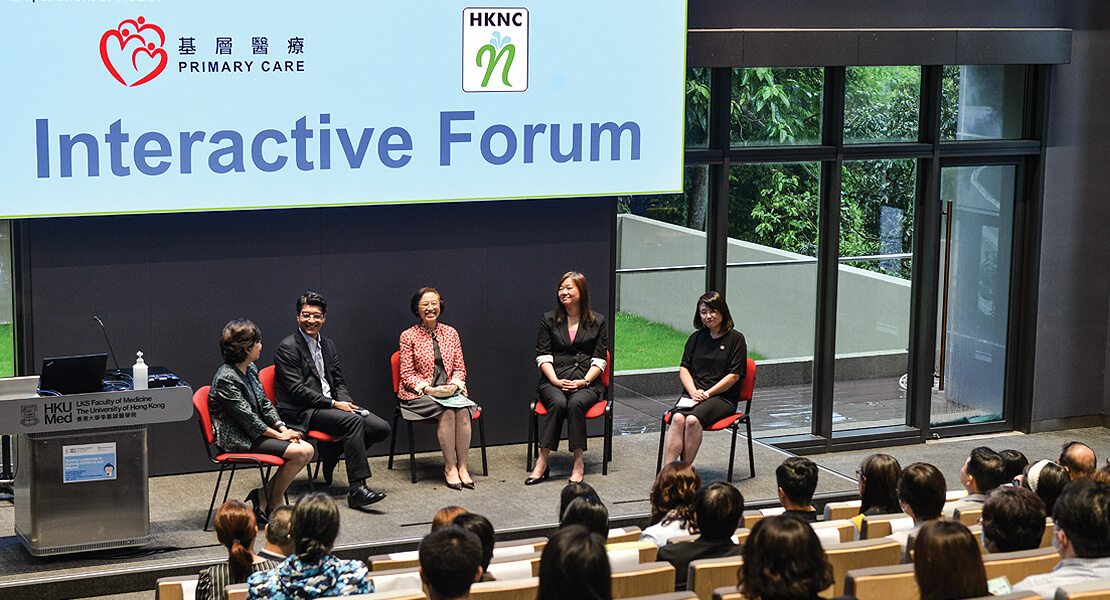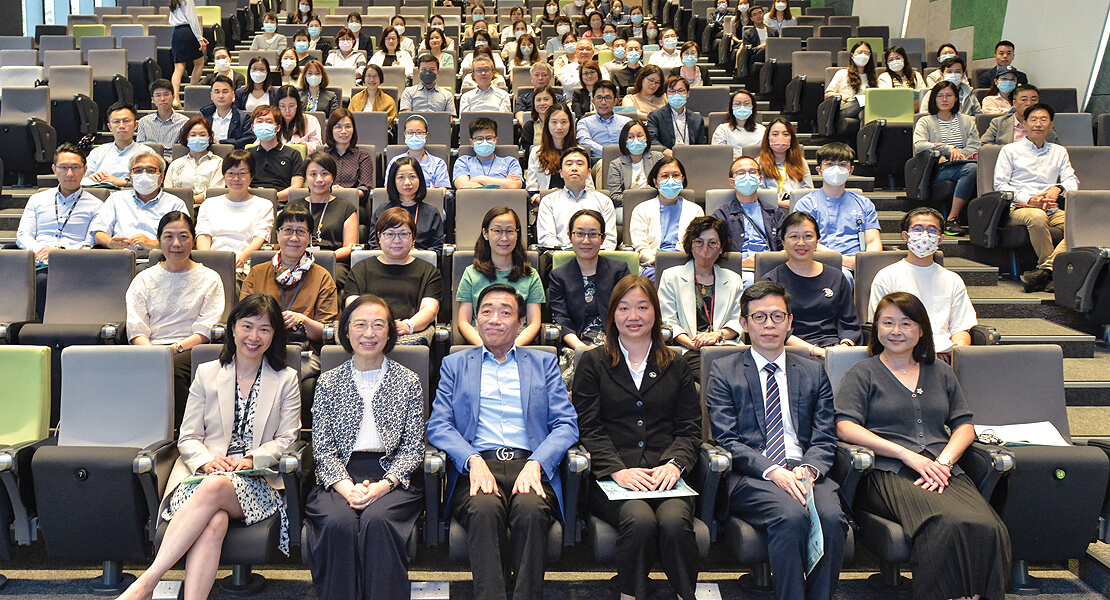
Clinical Excellence
Former Health Secretary Elevates Primary Health Care Focus at HKU
Professor Sophia Chan Siu-chee |Director, HKU Primary Health Care Academy|Senior Advisor to the President’s Office
When Professor Sophia Chan Siu-chee was appointed Secretary for Food and Health in 2017, one of the first policy missions was to tackle the shortfall in primary health care in Hong Kong.
The Hong Kong government traditionally invested heavily in the public secondary and tertiary care system although primary health care initiatives had improved somewhat since the Government Report of the Working Party on Primary Health Care: “Health for All - The Way Ahead” published in 1990. The Government only provides about 30 per cent of expenditure on primary care, versus 90 per cent of hospital expenditure. In addition, the challenges of an ageing population and increased prevalence of chronic diseases had put heavy burden on public hospitals especially when a comprehensive primary health care system acting as a gatekeeper is lacking.
“The emphasis on secondary and tertiary care created a situation whereby people used those sectors as their first point of contact in the healthcare system. Even for minor problems, they went to A&E departments or specialist clinics because they didn’t have a family doctor,” she said. “As a result, there were very long waiting times. The system was not sustainable.” But during her five-year tenure and with support from the Chief Executive, Professor Chan put in motion comprehensive reforms to create a primary health care system including setting up a Steering Committee on Primary Health Care (PHC) Development; the establishment of District Health Centres / Districts Health Centre Expresses in all 18 districts; and the completion of a draft Blueprint for future PHC development, aiming to strengthen the existing PHC services through the various policy tools to chart the way forward.
And now, returning to HKU where previously she served as Head of the School of Nursing, and Assistant Dean of the Faculty of Medicine, Professor Chan is continuing her mission to promote the reform of Hong Kong’s health care system through advancing science and nurturing the next generation of health care professionals in PHC, in support of this new PHC development.
For the University, the priorities are always education and research. On education and capacity building, she sees the School of Nursing playing a unique role because it prepares competent nurses of all levels from undergraduate to PhD, and nurses are the backbone of the health care system. In addition to training nurses to provide competent clinical care in hospitals, she said nurses now also need to possess appropriate skills in health coaching and prevention, so as to provide care for people in the community. For instance, helping those who are healthy to enhance their health status and have a good quality of life; assessing those at risk and to modify their health behaviours and to seek medical care as indicated; and preparing patients that are discharged from hospitals to manage their health condition in the community so as to prevent unnecessary hospital re-admission.
On research and advancing science, Professor Chan wants to see more research in developing and testing effective interventions and models in primary care as well as systematic health surveillance and big data analytics. Furthermore, health communication is crucial in knowledge dissemination and more involvement by nurses in communicating health information to the public and advocating on preventing the modifiable risk factors of chronic diseases such as smoking and alcohol drinking, which are normally influenced and dominated by commercial interests, would be critical. “My experience in government is that nurses are normally hard-working but keeping a low profile and quiet. But their professional voices and advocacy are crucial, being the largest group of health care professionals in Hong Kong. Now that I’m back at HKU, I would do my best to help nurses understand more about health policy and be policy advocates,” she said.
Professor Chan has also stepped into the bigger picture by forming the HKU Primary Health Care Academy, supported by the HKU Foundation’s Azalea (1972) Endowment Fund. This platform is open to all health care disciplines and aims to advance the sustainable development of primary health care in Hong Kong and beyond, and address the challenges brought by an ageing population and increased prevalence of chronic disease. It is organised around four pillars – research, education and capacity building, the development of evidence-based services and models of care, and policy advocacy locally, nationally, and internationally.
“At the end of the day, we are trying to facilitate the government’s development of this new journey in primary health care in Hong Kong and improve the overall health and quality of life of the public,” she said.



